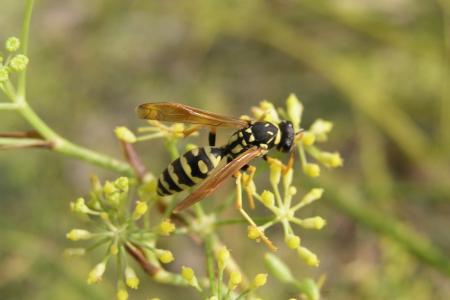Evolutionary Ecology
Evolutionary ecology explicitly links ecological and life-history thinking. We are interested in developing mathematical models for addressing a wide range of problems in evolutionary ecology including the evolution of parental care, longevity and cooperation. Central to our research paradigm is distinguishing between the evolution and maintenance of life-history strategies.
Evolution of anisogamy
Anisogamy is the evolution of different-sized gametes. Classic arguments focus on the relationship between zygote size and zygote fitness as the major drivers of the evolution of sexes. However, we are interested in developing an understanding of how costs of gamete production, gamete damage and genetic processes such as the role of inbreeding might influence the evolution of anisogamy.
Evolution of parental care
We are interested in understanding the life history conditions under which parental care will evolve, how parental care is shaped by inter-offspring relatedness, stochastic environments and cannibalism. Developing appropriate mathematical models allows us to discriminate between factors that affect the evolutionary origins from those that affect the evolutionary maintenance of parental care. In particular we have shown that the evolution of care and cannibalism is driven by a multitude of different ecological and life-history processes.
Evolution of longevity and senescence
Senescence is a decline in fertility and/or an increase in mortality as an organism ages. While evolutionary theories (antagostic pleiotropy, mutation accumulation) are well-established, the role of physiological decline on patterns of ageing and species interactions have only received limited attention. Using mathematical modelling approaches we have explored how differences in longevity might affect the structure of species assemblages, how physiological costs affect the evolution of senescence and how mutations and density-dependent processes interact to shape the evolution of longevity.
Kin selection models of senescence
Traits that not only effect the fitness of the individual, but also the fitness of relatives, will be under kin selection. This is no different for the age-specific rates of mortality and fertility that individuals experience, which are commonly described as the ageing patterns of a population or species. We use mathematical modelling approaches to test whether different cooperative breeding systems and social interactions may alter expectations for how senescence evolves.
Evolution of cooperation
Using the insect pathogen Bacillus thuringiensis we have explored how cooperative virulence traits (the production of crystal toxins) are maintained in the field. The role of frequency dependence and epidemiology (population dynamics) interplay to affect the persistence of cooperators (toxin producers) and cheats (toxin nulls). Using mathematical approaches linking evolutionary games with ecological dynamics, we are interested in understanding how cooperation, in addition to the classic ideas about trade-offs, affects the evolution and maintenance of resource specialism or generalism.
Evolutionary ecology of development
Variation in development can arise due to a range of different reasons (e.g. relative contributions of genetic, parental or environmental inputs). We are using mathematical approaches to investigate how life-history trade-offs and environmental variation affect the evolution of developmental plasticity, and the link between developmental processes and population dynamics.
Selected Publications
Bonsall, M.B. and A.E.Wright (2012) Altruism and the evolution of resource generalism and specalism. Ecology and Evolution, 2, 515-534. http://dx.doi.org/10.1002/ece3.206
Raymond, B., S.A. West, A.S. Griffin and M.B. Bonsall (2012) The dynamics of cooperation in the field. Science, 337, 85-88. http://dx.doi.org/10.1126/science.1218196
Klug, H. and M.B. Bonsall (2010) Life history and the evolution of parental care. Evolution, 64, 825-835. http://dx.doi.org/10.1111/j.1558-5646.2009.00854.x
Klug, H. and M.B. Bonsall (2007) When to care for, abandon or eat your offspring: the evolution of parental care and filial cannibalism. American Naturalist, 170, 886-901. http://dx.doi.org/10.1086/522936
Bonsall, M.B. (2006) The evolution of anisogamy: the adaptive significance of damage, repair and mortality. Journal of Theoretical Biology, 238, 198-210. http://dx.doi.org/10.1016/j.jtbi.2005.05.007


